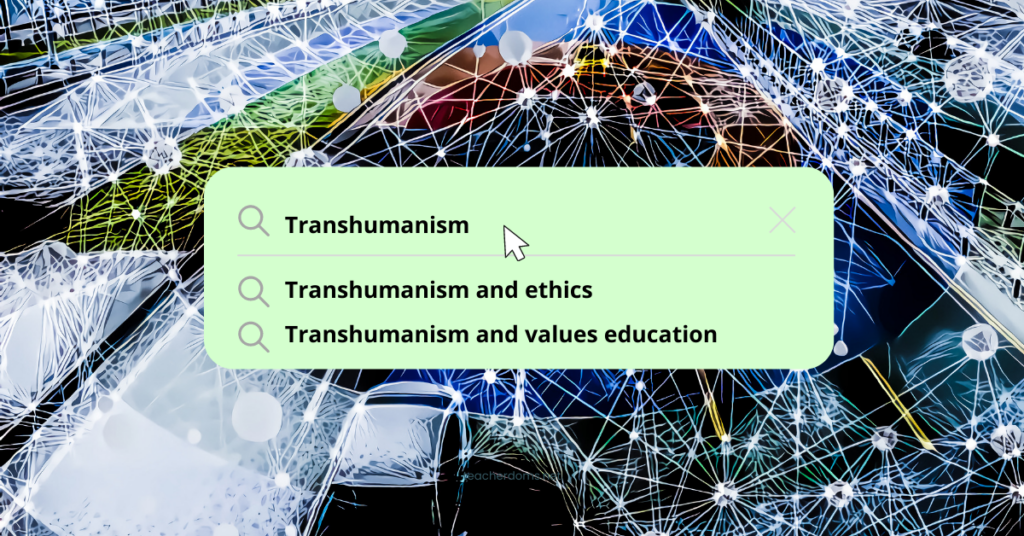
Transhumanism: Exploring the Ethical and Philosophical Dimensions
Transhumanism, a thought-provoking movement, delves into the realm of human evolution by exploring the ethical and philosophical implications of augmenting human abilities through technology. As advancements in fields such as artificial intelligence, genetic engineering, and human augmentation gain momentum, the ethical considerations surrounding these technologies become increasingly complex.
This article briefly analyzes the key concepts and underlying ethical and philosophical dimensions of transhumanism, discussing its potential impacts on humanity’s future.
Transhumanism: Unveiling the Core Concepts
Transhumanism envisions a future where technology enables humans to transcend their current limitations. Central to this movement are several key concepts:
- Human Enhancement: Transhumanism advocates for using technology to enhance human abilities beyond what is naturally attainable. This includes cognitive enhancements through brain-computer interfaces, physical augmentations, and even extending human lifespans through medical advancements.
- Artificial Intelligence and Cognitive Augmentation: Transhumanism embraces the idea of integrating artificial intelligence (AI) with human cognition to create a hybrid intelligence that combines human creativity and emotion with AI’s analytical capabilities.
- Genetic Engineering: This aspect of transhumanism explores the potential of genetic modifications to eliminate hereditary diseases, enhance physical attributes, and potentially create designer babies.
- Ethical and Philosophical Implications: Transhumanism forces us to confront questions about the nature of humanity, the concept of identity, and the potential consequences of transcending biological limitations.
Ethical and Philosophical Dimensions of Transhumanism
- Human Dignity and Identity: One of the key ethical concerns revolves around preserving human dignity and maintaining a coherent human identity in the face of significant enhancements. Critics argue that tampering with fundamental human traits might lead to a loss of authenticity and a shift toward a post-human identity.
- Social Inequality: The pursuit of human enhancement technologies could lead to a division between those who can afford such enhancements and those who cannot. This disparity raises questions about social justice and access to these technologies.
- Unintended Consequences: The rapid pace of technological advancement raises concerns about unforeseen consequences. Enhancements intended to improve human lives could inadvertently lead to new risks or unforeseen ethical dilemmas.
- Existential and Ethical Risks: As humans redefine their relationship with technology, new ethical challenges arise, such as the moral implications of creating sentient AI or merging human consciousness with machines.
Impacts on the Future of Humanity
Transhumanism has the potential to significantly shape the future of humanity, impacting various spheres of life:
- Healthcare and Longevity: Advances in genetic engineering could lead to the eradication of hereditary diseases and increased lifespan. This, however, raises questions about the sustainability of an aging population like Japan, China, and other European countries.
- Human Experience: Cognitive enhancements could revolutionize education, communication, and problem-solving, potentially leading to a society with enhanced intellectual abilities.
- Ethics and Moral Frameworks: Transhumanism challenges traditional ethical frameworks and encourages us to develop new principles that consider the intersection of technology and humanity. This will definitely impact Values Education, especially in the Philippines.
- Human-Machine Interaction: As humans become increasingly integrated with technology, the lines between human and machine could blur, necessitating new societal norms and ethical guidelines.
Conclusion
Transhumanism represents a fascinating journey into the realm of human potential, driven by the integration of technology and biology. The movement forces us to confront ethical and philosophical questions that touch the very essence of what it means to be human. While transhumanism offers the promise of overcoming limitations, it also demands careful consideration of the ethical implications and potential risks involved. As we navigate this uncharted territory, society must engage in thoughtful dialogue and establish ethical guidelines that balance progress with our shared human values.
Read Transhumanism and Values Education HERE.
References
- Bostrom, N. (2003). Transhumanism: The World’s Most Dangerous Idea? Humanist, 63(4), 5-8.
- Bostrom, N. (2003). The transhumanist FAQ. Readings in the Philosophy of Technology, 2(4), 355-360.
- Bostrom, N. (2004). Transhumanism: The world’s most dangerous idea? https://nickbostrom.com/papers/dangerous
- Bostrom, N. (2005). In defense of posthuman dignity. Bioethics, 3(19), 202-214. https://nickbostrom.com/ethics/dignity
- Harris, J. (2007). Enhancing Evolution: The Ethical Case for Making Better People. Princeton University Press.
- Sandberg, A. (2019). The Transhumanist FAQ. Retrieved from https://www.nickbostrom.com/views/transhumanist.pdf